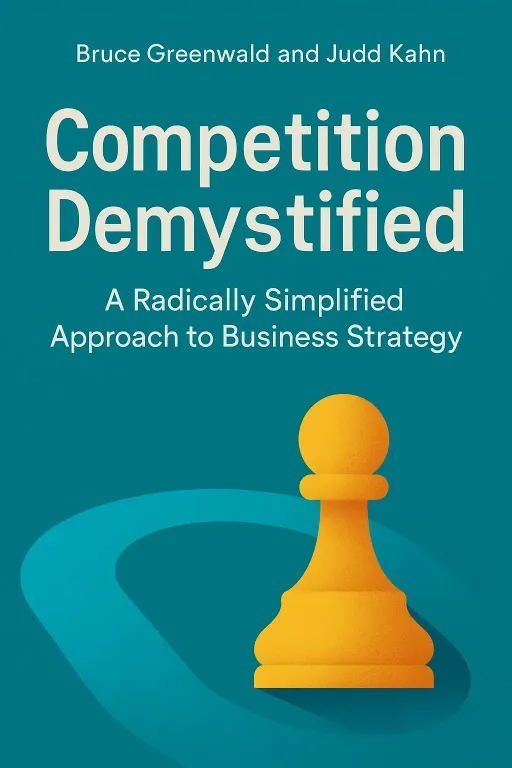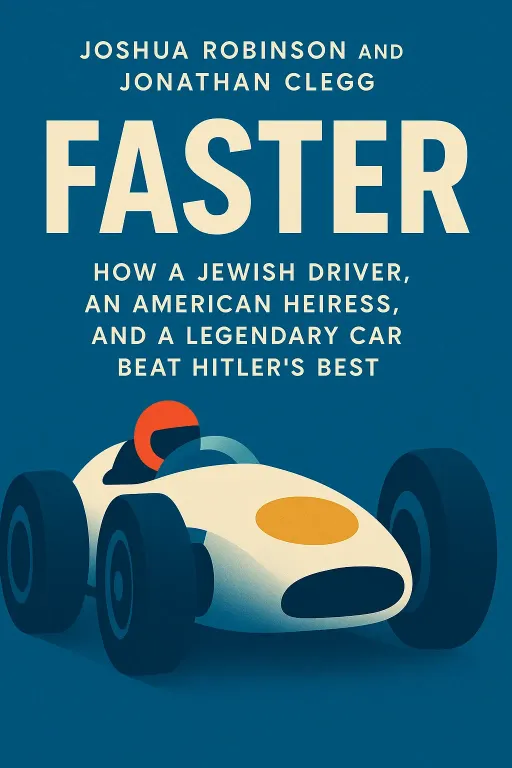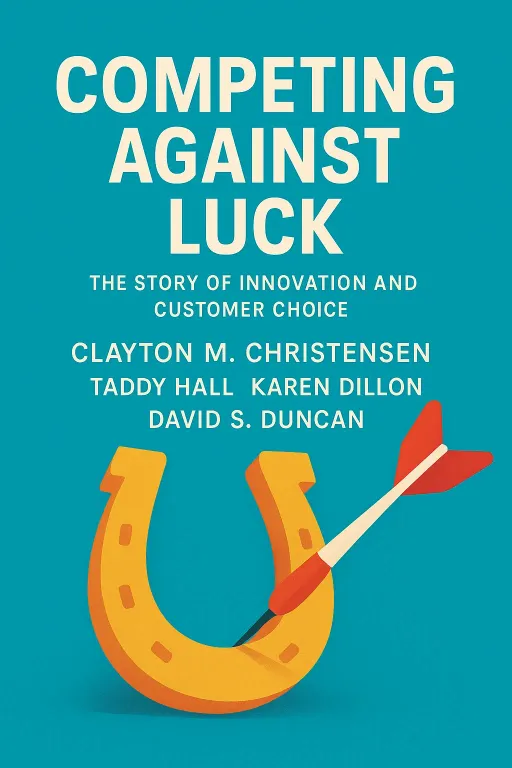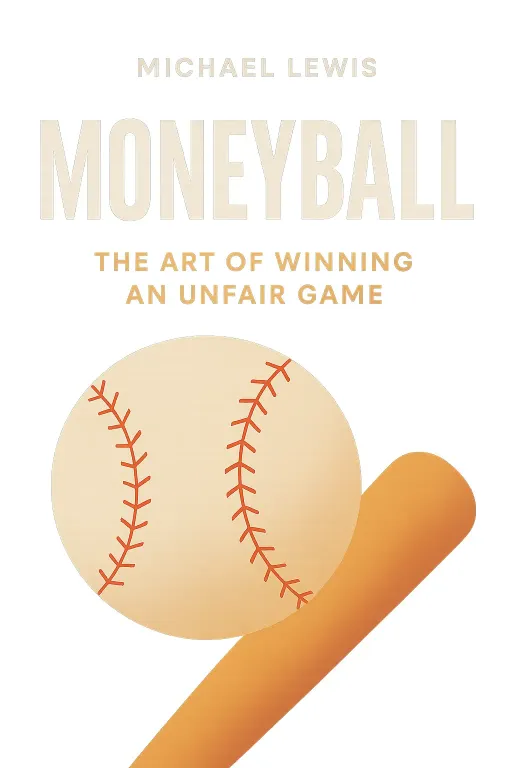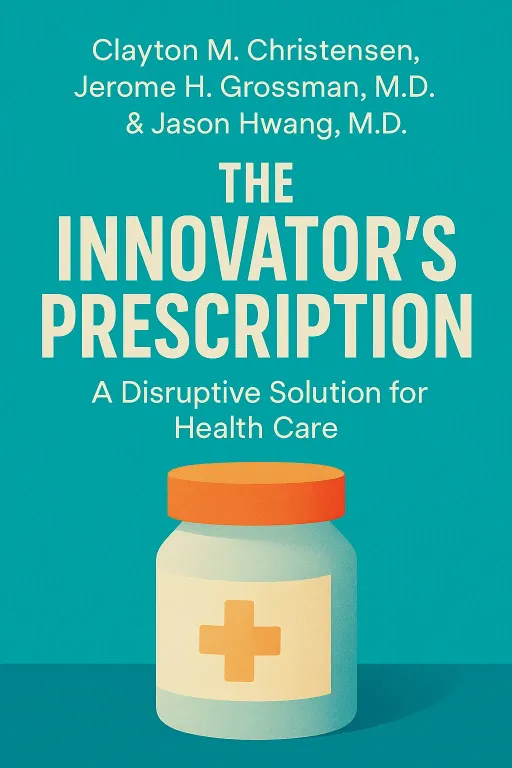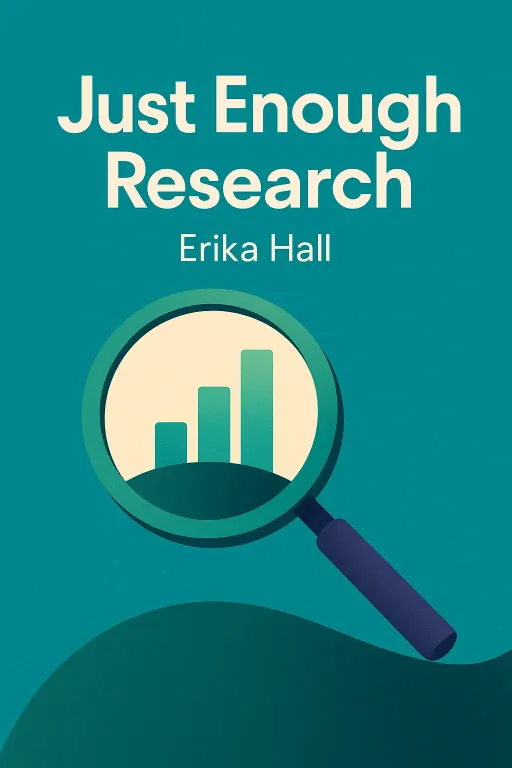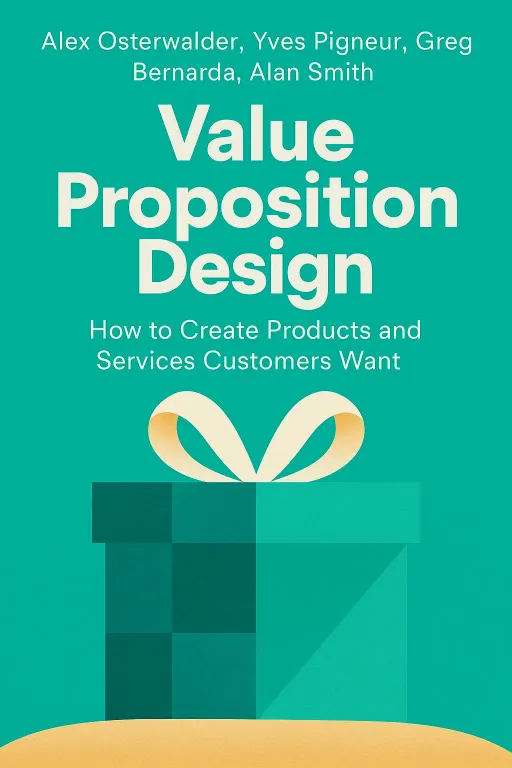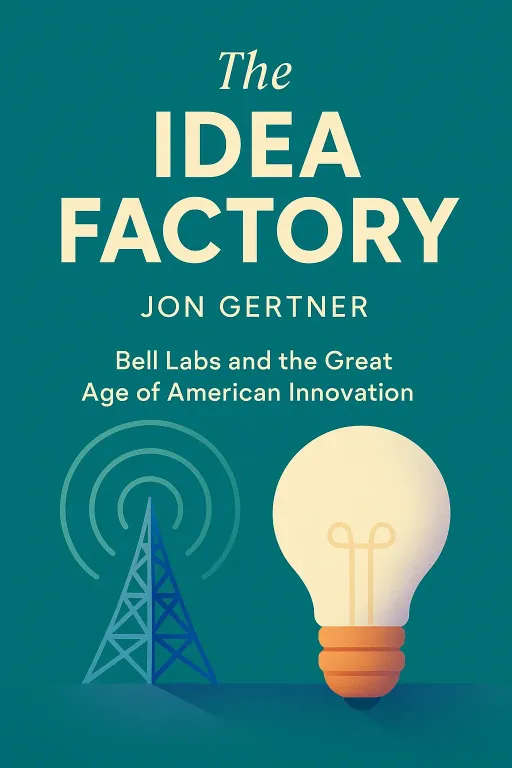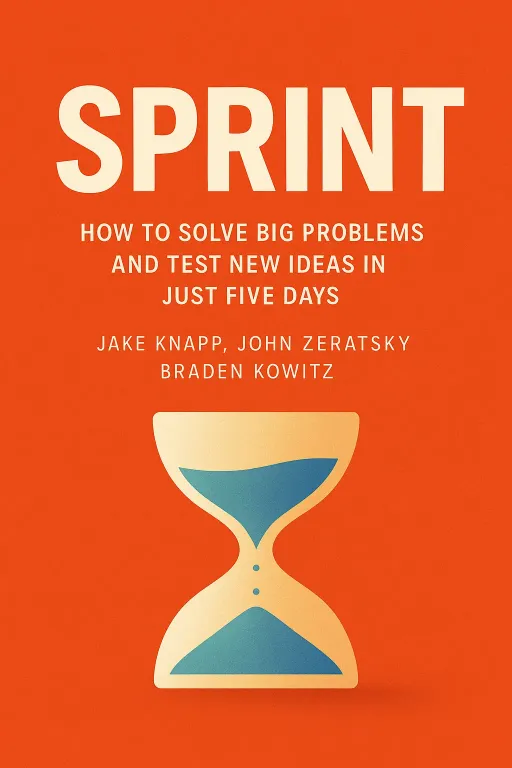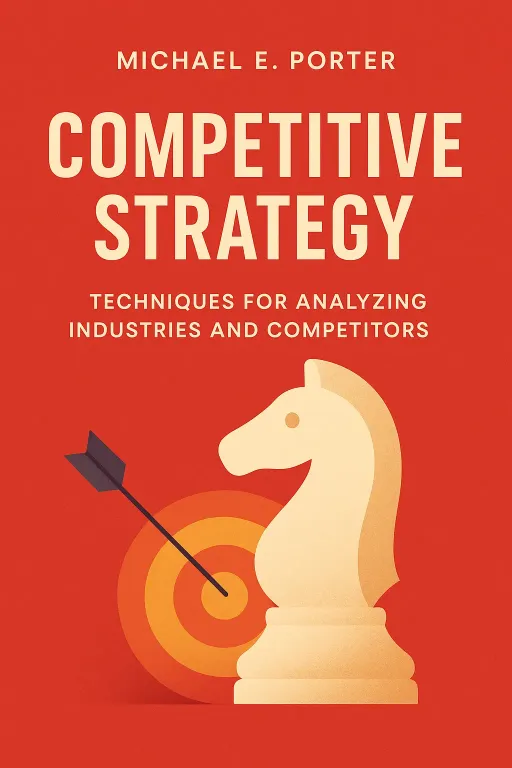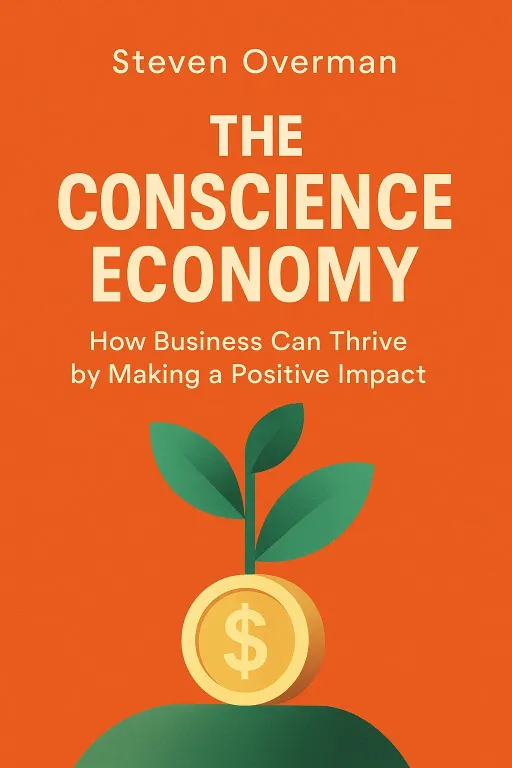
Beyond the Guilt Tax
11 minHow a Mass Movement for Good Is Great for Business
Golden Hook & Introduction
SECTION
Joe: Lewis, what's the first thing you think of when you hear the phrase ‘Corporate Social Responsibility’? Lewis: Honestly? A glossy page in an annual report. A photo of a CEO in a hard hat planting a tiny, sad-looking tree. It feels like a tax companies pay on their guilt. Joe: A guilt tax! That's perfect. It’s this separate, walled-off thing that’s meant to make us feel better about the main business. Well, what if I told you that entire concept is dead? Lewis: Dead? That's a bold claim. Companies spend billions on it. Joe: And that's the central argument in a fascinating book we're diving into today: The Conscience Economy by Steven Overman. He argues that the whole model of CSR as a side-project is obsolete. Lewis: Overman… hold on, isn't he one of the original guys from Wired magazine? Joe: He is! Which makes perfect sense. He was on the front lines of the Digital Revolution, and he sees this shift towards ethical business as the next great cultural and economic wave. The book itself got a lot of praise from places like Publishers Weekly for being a 'lucid guide' to this new world, even if some readers found its optimism a bit overwhelming. Lewis: I can see that. It’s easy to be cynical about this stuff. Joe: It is. But Overman argues this whole idea starts not with corporations, but with culture. With people. He tells this great little story that really sets the scene.
The Conscience Culture: Why 'Good' is the New Status Symbol
SECTION
Joe: He describes being in a hip, dimly lit restaurant in London, somewhere between the financial district and the tech hub. He overhears this young guy in his late twenties, a 'Young Turk' as he calls him, on a date. Lewis: Okay, I'm picturing it. He's probably bragging about his stock options or his new sports car. Joe: That's what you'd expect, right? The classic Wall Street archetype. But this guy is leaning in, all charisma and energy, and he says, "We've just closed another nine million in financing. And you know why that makes me so proud? Because we're not just doing well. We're doing good." Lewis: Huh. That is not the line I was expecting. What did his company do? Joe: It provided infrastructure technology for sustainable energy utilities. And the key for Overman was the sincerity. This wasn't a PR line. For this guy, and for his whole generation, the "doing good" part was the real status symbol. It was the flex. The thing that made him attractive, interesting, and successful. Lewis: So the argument is that "goodness" is becoming a new form of cultural capital. It's cool to care. Joe: Exactly. It's a profound shift in values. The book talks about how this new generation is rejecting old norms. They're making purchasing decisions based on ethics, supporting local and fair-trade products, and using technology to hold companies accountable. It’s a move away from pure individualism towards a more collective mindset. Lewis: I've heard this before, but it can feel a bit abstract. Does he give other examples of this mindset in action? Joe: He does, and one of the most powerful is from a trip to Soweto in South Africa. He meets a young man named Mangaliso who runs a "concept store" in a shed on a dusty road. Lewis: A concept store in Soweto? What does that even mean? Joe: That's what Overman wondered. Mangaliso explained he was selling a lifestyle, inspired by international magazines. He wanted to bring that influence to his neighbors. And then he holds up a t-shirt. On it is a drawing of a knot and two hands making a heart shape. Above it, one word: 'Ubuntu'. Lewis: Ubuntu. I know that word. It's that philosophy of interconnectedness, right? "I am because we are." Joe: Precisely. Mangaliso tells him, "This is what we're all about. Ubuntu." His store wasn't just a store; it was a social hub, a catalyst inspiring people to create things that expressed this idea of human kindness through togetherness. For Overman, this was proof that this desire for collective well-being isn't just a Western, privileged trend. It's a global human aspiration, bubbling up everywhere. Lewis: Okay, that's a much more powerful example than a tech guy in a London bar. But let's be real, Joe. For every Mangaliso, there's a multinational corporation polluting a river. The book itself mentions a survey where 96 percent of people around the world mistrust the banking sector. They're not feeling the Ubuntu from their bank. Joe: You're absolutely right to be skeptical. And the book doesn't shy away from that. That widespread mistrust is the fuel for this change. It's the reason the Conscience Economy is emerging. People are fed up. They have the tools, through technology and social media, to see what companies are doing in real-time. They can see the disconnect between the glossy CSR report and the reality of the supply chain. Lewis: So the hypocrisy is becoming too visible to ignore. Joe: Exactly. Transparency is forcing a change. Consumers are saying, "If you want my money, you have to earn my trust. And you earn my trust by showing me your values align with mine." It's a massive power shift, from the boardroom to the person holding the smartphone. Lewis: That makes sense. The pressure is building from the outside. So if this cultural pressure is real, and the old way of handling it—the glossy report, the tree-planting photo-op—is no longer working, how are businesses supposed to respond? You said CSR is dead. What replaces it?
The Death of Business as Usual: From CSR Box-Ticking to Brand as Soul
SECTION
Joe: What replaces it is something much deeper. It's a shift from CSR—Corporate Social Responsibility—to what Overman might call embedded conscience. It’s not a department; it's the DNA of the company. And the best way to understand this is through another story, about a man named Duncan Goose. Lewis: Duncan Goose. That's a name you don't forget. Joe: You don't. In the early 2000s, Duncan was a successful ad executive in London. He had the great job, the nice flat, everything. But he felt empty. He felt like he'd learned all he could from the business world and was craving something more. Lewis: Oh, I know that feeling. The "is this all there is?" moment. Joe: Exactly. So he does something radical. He quits his job, sells everything he owns, and sets off on a round-the-world motorcycle trip to find some meaning. His journey eventually takes him to Honduras. And while he's there, a devastating hurricane hits. Lewis: Wow. From a London ad agency to a natural disaster zone. Joe: A complete reality shift. He described an entire village just being wiped out. But what struck him was the resilience and generosity of the people. He said, "People who have nothing will share with you what they have." He stayed with them, helped them rebuild, and had a profound realization about something we take for granted every single day: clean water. Lewis: Right. When you see people struggling for it, you realize it's the most precious resource on Earth. Joe: It changed him. He came back to London, but he couldn't just go back to his old life. He was obsessed with this problem. So he decided to start a business. He founded a bottled water company called 'One Water'. Lewis: Okay, but there are a million bottled water companies. What was different? Joe: The entire premise was different. The company's profits are donated to fund clean water projects in developing countries. The social mission isn't a line item in a budget; it is the company. The product and the purpose are one and the same. When you buy a bottle of One Water, you are directly funding a solution. Lewis: That's the embedded conscience you were talking about. It's not a side project. It's the core reason for existing. Joe: That's it exactly. And this is where the idea of "Brand as Soul" comes in. For a company like One Water, the brand isn't a logo or a clever slogan. Overman says a brand is the company's soul. It's the set of beliefs that guides every single decision, from hiring to product design to finance. It's the company's conscience, made visible. Lewis: But isn't this just a new, more sophisticated form of marketing? The book mentions the concept of 'ethical luxury.' People want to do good, but they don't want to sacrifice comfort or pay more. So companies are just packaging ethics as a premium feature. How do we know it's a real 'soul' and not just a better sales pitch? Joe: That's the million-dollar question, and it's why the old model of marketing is also dying. Traditional marketing is a one-way megaphone: "Buy our stuff! It's great!" The book argues that in the Conscience Economy, the marketer's job changes from being a Chief Marketing Officer to a Chief Matchmaking Officer. Lewis: A Chief Matchmaking Officer? So my shampoo brand is trying to set me up on a date? Joe: In a way, yes! It's about finding the people who genuinely share your company's values and building a long-term, trusting relationship with them. It's a two-way conversation, not a monologue. It's about clarity, cohesion, and context. It’s about being so transparent about your soul—your values, your supply chain, your impact—that the right people are naturally drawn to you. Lewis: And the wrong people are repelled. I'm thinking of that story about the CEO of Barilla, the pasta company. Joe: A perfect example of what happens when a brand's soul is exposed and it doesn't align with the culture. In 2013, the CEO made comments that were seen as anti-gay marriage, saying he'd never feature a same-sex family in their ads. The backlash on social media was immediate and massive. Boycotts were organized. The brand's soul was perceived as exclusionary, and a huge segment of the market said, "Nope. Not for us." They had to backtrack and completely overhaul their diversity policies. Lewis: Because in a connected world, you can't hide your soul. What you believe as a company is now a core part of your product. Joe: You can't. And that's the new accountability. It's not just about financial returns anymore. It's about your return to society, to your employees, to the planet.
Synthesis & Takeaways
SECTION
Lewis: So, when you boil it all down, what's the one thing we absolutely need to grasp about this 'Conscience Economy'? It feels like a huge, sprawling idea. Joe: It is, but it comes down to one simple, powerful equation. Overman writes, "In the Conscience Economy, externality becomes materiality." Lewis: Okay, you've got to break that down for me. Externality becomes materiality. Joe: Think about it. For decades, things like pollution, unsafe working conditions, or using conflict minerals were considered "externalities." They were costs that society or some faraway community had to bear, but they didn't show up on the company's profit and loss statement. They were external to the business. Lewis: Right, they were someone else's problem. Joe: Not anymore. In a transparent, hyperconnected world, those externalities are now material to your business. A factory collapse in Bangladesh isn't an externality; it's a direct hit to your brand's reputation and your sales. Conflict minerals in your smartphone aren't an externality; they're a reason customers will choose your competitor. The line between a business's balance sheet and its impact on the world is dissolving. Lewis: Wow. So it’s not about philanthropy or being nice. It's about survival. The things we used to ignore are now mission-critical business risks. Joe: It's the ultimate form of self-interest. To thrive long-term, you have to be a good custodian of the environment and a good partner to society, because those are the very things that allow your business to exist in the first place. Lewis: That's a powerful thought. It really does make you look at every dollar you spend differently. It's a vote, as the book says. You're voting for the kind of world you want to live in. Joe: Exactly. And it leaves us with a big question for everyone listening: which companies out there do you feel are truly living this? Not just talking the talk, but have a brand with a real, tangible soul? Lewis: Yeah, we'd love to hear your thoughts. Find us on our socials and share them. Let's build a list of the good ones, the ones that are getting it right. Joe: This is Aibrary, signing off.
